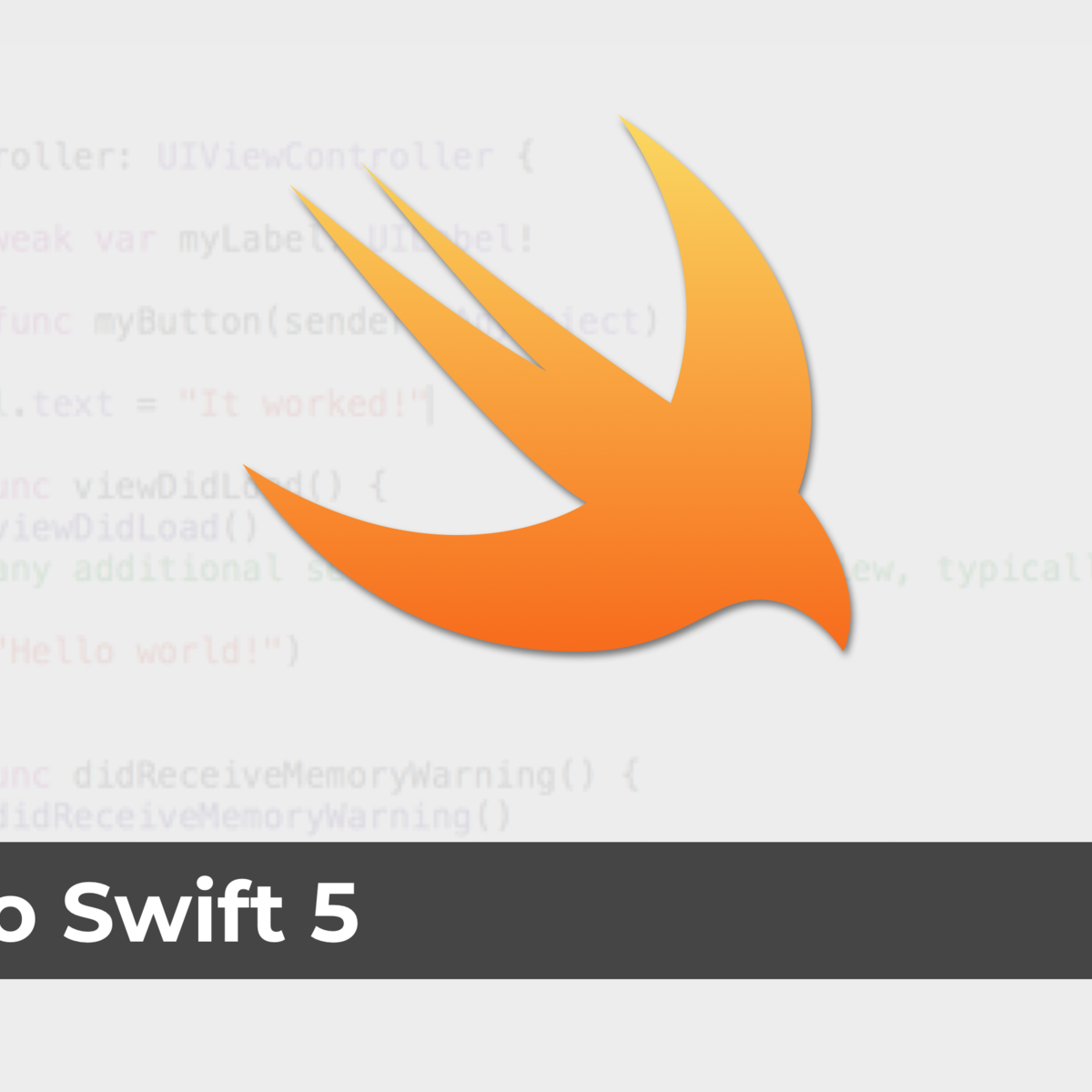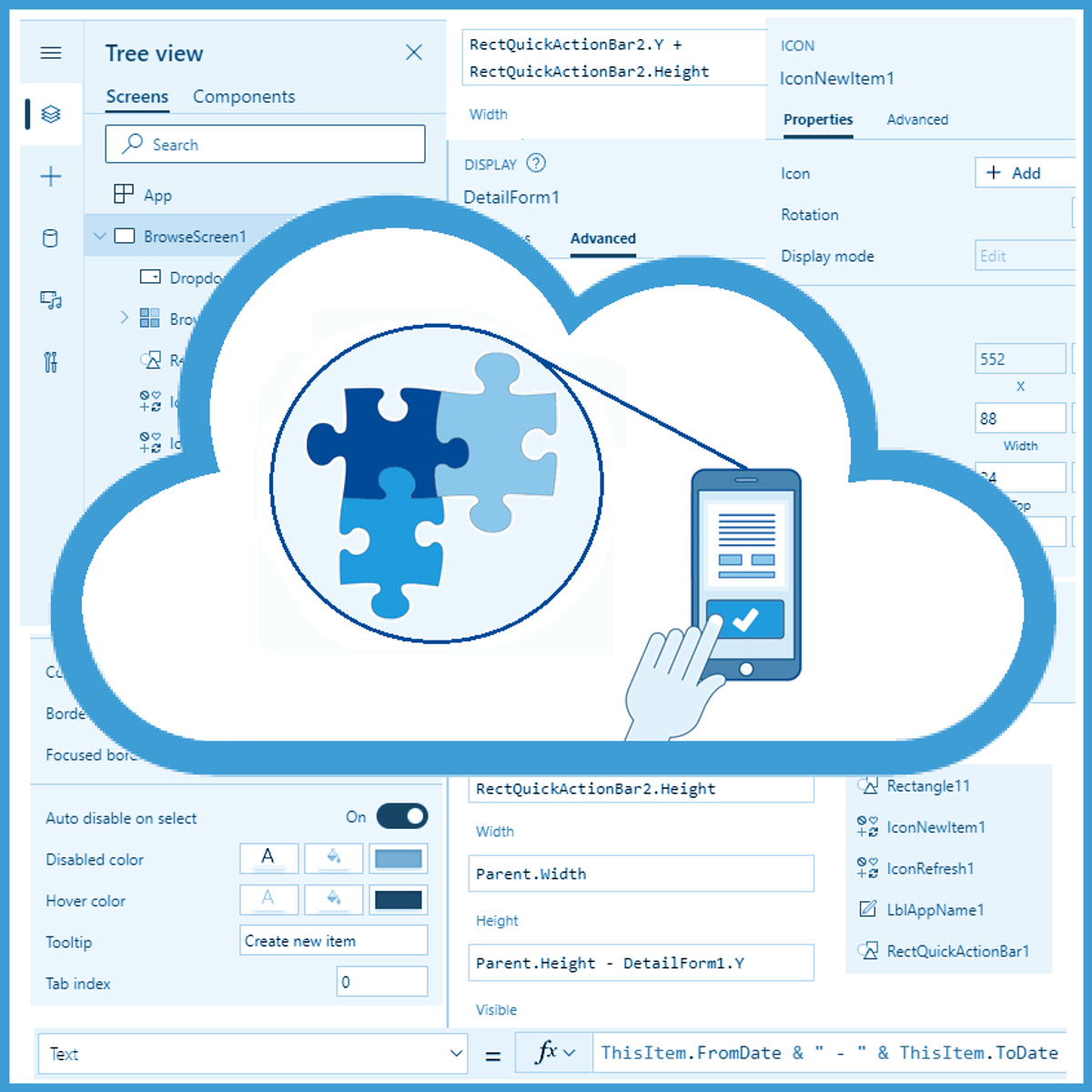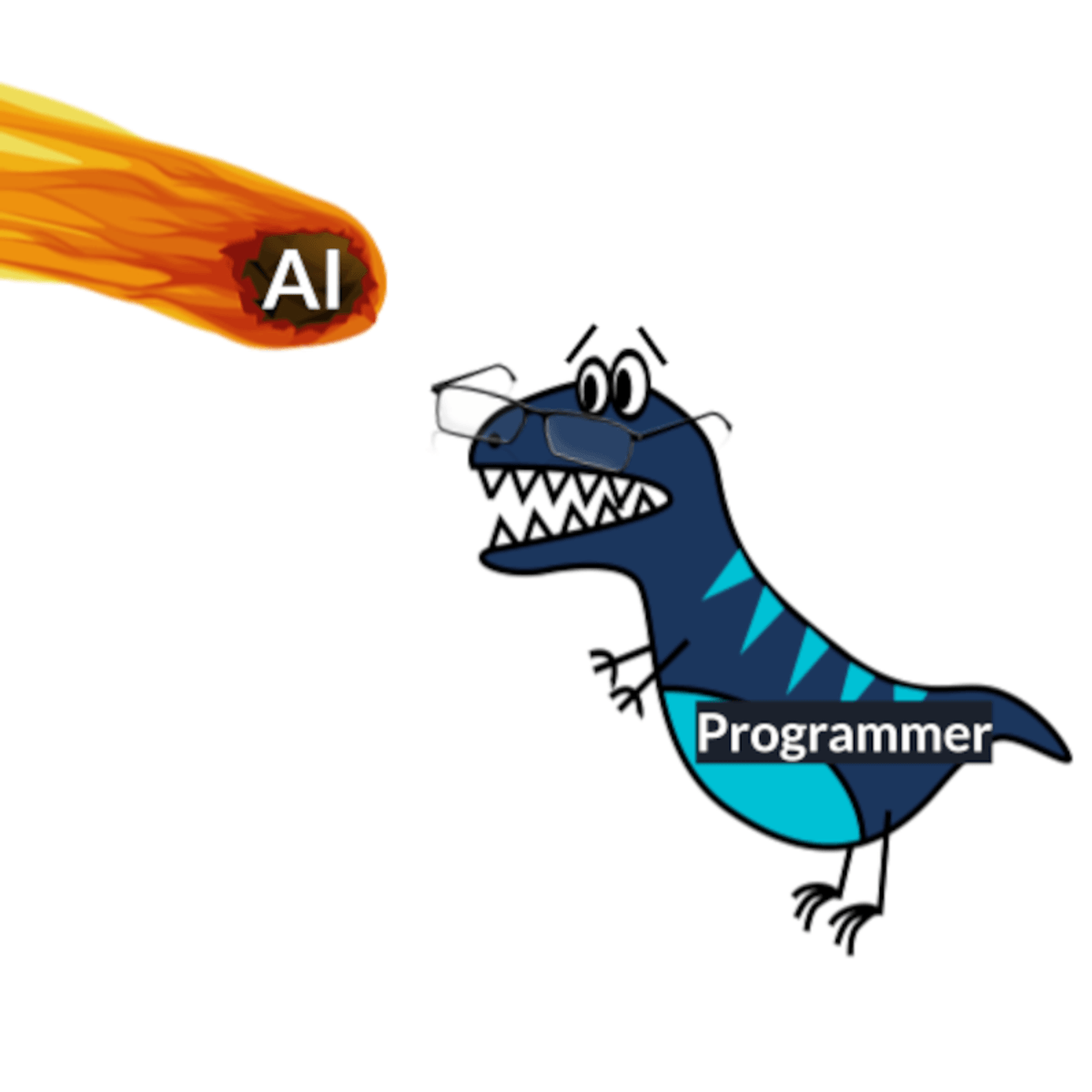Information Technology Specialist
Comprehensive Guide to Becoming an Information Technology Specialist
An Information Technology (IT) Specialist is a professional who is responsible for the implementation, maintenance, monitoring, and support of an organization's computer systems and networks. These individuals ensure that IT systems run smoothly and efficiently, providing a stable technological foundation for all other business operations. IT Specialists are the troubleshooters, the problem-solvers, and the technical experts who keep the digital gears of a company turning. They work with a wide array of technologies, from hardware and software to networks and security protocols, making their role diverse and ever-evolving.
Working as an IT Specialist can be an engaging and exciting career path for several reasons. Firstly, the field is incredibly dynamic; technology changes rapidly, meaning there's always something new to learn and master, which keeps the work stimulating. Secondly, IT Specialists often have the satisfaction of solving tangible problems, directly helping colleagues and contributing to the overall success of their organization. Finally, the demand for skilled IT professionals is consistently strong across virtually all industries, offering a sense of job security and a variety of environments to work in, from bustling tech startups to established corporations and public sector organizations.
Key Responsibilities of an Information Technology Specialist
The daily life of an Information Technology Specialist is varied, encompassing a range of crucial tasks that keep an organization's technological infrastructure operational and secure. These responsibilities require a blend of technical acumen, problem-solving skills, and often, strong communication abilities.
System Maintenance and Troubleshooting
A primary responsibility of IT Specialists is the ongoing maintenance of computer systems and networks. This includes performing regular updates, installing new hardware and software, and ensuring that all components are functioning optimally. When technical issues arise, IT Specialists are the first line of defense, diagnosing problems with hardware, software, servers, or network connections. They methodically identify the root cause of an issue and implement effective solutions to minimize downtime and disruption. This might involve repairing or replacing faulty equipment, reconfiguring software, or restoring data from backups.
Effective troubleshooting requires a logical approach and a deep understanding of how different IT components interact. Specialists often use diagnostic tools and software to assist in this process. Moreover, they are responsible for documenting issues and their resolutions, which helps in building a knowledge base for future problem-solving and can inform preventative maintenance strategies. Staying calm under pressure is a key attribute, especially when critical systems are affected.
To gain foundational knowledge in system operations and troubleshooting, particularly in widely used environments, online courses can be very beneficial. They offer structured learning on operating systems and common IT issues.
Understanding the tools and procedures for maintaining systems is crucial. Books on operating systems and IT support can provide in-depth knowledge.
Cybersecurity Implementation and Monitoring
In an era of increasing digital threats, cybersecurity is a paramount concern for all organizations. IT Specialists play a vital role in implementing and monitoring security measures to protect sensitive data and systems from unauthorized access, malware, and other cyber threats. This includes installing and configuring firewalls, antivirus software, and intrusion detection systems. They also manage user access controls, ensuring that employees only have access to the data and systems necessary for their roles.
Monitoring network traffic for suspicious activity is another critical aspect of this responsibility. IT Specialists may analyze security logs, respond to security alerts, and participate in security audits. They must stay updated on the latest cybersecurity threats and best practices to adapt their organization's defenses accordingly. Educating users about security protocols and promoting a culture of security awareness is also often part of their duties.
For those looking to develop their skills in this critical area, there are numerous online resources. Courses focusing on network security and cybersecurity fundamentals can provide the necessary expertise.
Network Management and Administration
IT Specialists are often responsible for the setup, configuration, and maintenance of local area networks (LANs), wide area networks (WANs), and other network segments. This involves managing network hardware such as routers, switches, and access points. They ensure reliable network connectivity for all users and devices within the organization. Network performance monitoring is key, allowing specialists to identify and resolve bottlenecks or connectivity issues proactively.
Responsibilities can also include managing IP addresses, network protocols like TCP/IP, and network services such as DNS and DHCP. They may also be involved in planning and implementing network upgrades or expansions to accommodate organizational growth or new technological requirements. Documenting network configurations and changes is essential for effective management and troubleshooting.
Aspiring network administrators can find excellent courses online to build these specific skills. Look for programs that cover network protocols, hardware configuration, and network troubleshooting techniques.
A deeper understanding of network architecture and protocols can be gained from comprehensive texts on the subject.
User Support and Training
Providing technical support to end-users is a significant part of an IT Specialist's role. This involves responding to help desk tickets, troubleshooting user-specific issues, and offering guidance on the use of hardware and software. Patience and strong communication skills are vital, as specialists often need to explain technical concepts to non-technical users. They may provide support in person, over the phone, or via remote assistance tools.
Beyond reactive support, IT Specialists may also be involved in proactive user training. This can include developing training materials, conducting workshops on new software or IT procedures, and onboarding new employees with respect to IT resources. The goal is to empower users to utilize technology effectively and securely, thereby enhancing productivity and reducing the number of common support requests.
For those who enjoy helping others and have a knack for explaining complex topics simply, this aspect of the role can be very rewarding. Online courses can help develop both technical communication skills and knowledge of common user-facing technologies.
Core Technical Skills for Information Technology Specialists
To excel as an Information Technology Specialist, a robust set of technical skills is indispensable. These skills form the bedrock upon which they build, maintain, and secure an organization's IT infrastructure. The specific skills required can vary based on the role and industry, but several core competencies are consistently in demand.
Operating Systems Proficiency
A deep understanding of various operating systems (OS) is fundamental for IT Specialists. This typically includes mastery of Windows client and server editions, as they are prevalent in many corporate environments. Proficiency involves installation, configuration, troubleshooting, user management, and understanding of file systems and permissions. For example, an IT Specialist might need to deploy a new Windows Server, configure Active Directory for user authentication, or troubleshoot a Windows 10 blue screen error for an end-user.
Beyond Windows, familiarity with Linux distributions (like Ubuntu, CentOS, or Red Hat) is increasingly valuable, especially for server administration, web hosting, and cloud environments. Knowing how to navigate the command line, manage packages, and configure services in Linux is a key skill. Similarly, experience with macOS is important in organizations that utilize Apple hardware, requiring specialists to support and manage these devices within the corporate network.
Online courses offer excellent pathways to gaining proficiency in these operating systems. Many provide hands-on labs and simulations to practice real-world scenarios.
For a solid foundation in general IT concepts, including operating systems, consider this comprehensive course:
Cloud Computing Platforms
Cloud computing has revolutionized how organizations manage their IT resources, and proficiency with major cloud platforms is a highly sought-after skill. IT Specialists should understand the fundamentals of cloud services, including Infrastructure as a Service (IaaS), Platform as a Service (PaaS), and Software as a Service (SaaS). Familiarity with leading providers like Amazon Web Services (AWS), Microsoft Azure, or Google Cloud Platform (GCP) is crucial.
This might involve tasks such as migrating on-premises servers to the cloud, managing virtual machines, configuring cloud storage solutions like Amazon S3 or Azure Blob Storage, or setting up virtual private clouds (VPCs). For example, an IT Specialist could be responsible for deploying a web application on AWS Elastic Beanstalk or managing user identities and access in Azure Active Directory. Understanding cloud security best practices is also paramount.
Many online learning platforms provide specialized training and certification paths for these cloud platforms. These courses often include hands-on labs in actual cloud environments.
Scripting and Automation
The ability to automate repetitive tasks using scripting languages can significantly enhance an IT Specialist's efficiency and effectiveness. Common scripting languages in this domain include Python and PowerShell. Python is versatile and widely used for system administration, network automation, and even security tasks. For instance, a specialist might write a Python script to automate daily backups or to parse log files for specific events.
PowerShell is particularly powerful for managing Windows environments. It allows for complex automation of tasks related to Active Directory, Exchange Server, and other Microsoft products. An example could be a PowerShell script to automate the creation of new user accounts with specific permissions. Understanding scripting fundamentals, variables, loops, and conditional logic is key to leveraging these tools effectively.
Online courses are an excellent way to learn these scripting languages from scratch or to enhance existing skills. Many courses focus on practical applications relevant to IT administration.
Learning the fundamentals of programming is a good starting point. You might also want to explore how scripting applies to specific tasks like automation.
Database Management Fundamentals
While dedicated Database Administrators (DBAs) often handle complex database tasks, IT Specialists frequently need a fundamental understanding of database management. This includes familiarity with relational database concepts, Structured Query Language (SQL) for querying and manipulating data, and basic administration of common database systems like MySQL, PostgreSQL, or Microsoft SQL Server.
An IT Specialist might need to run SQL queries to retrieve information for a report, troubleshoot connectivity issues to a database server, or perform basic backup and restore operations. For example, they might help a user who cannot access a database-driven application by checking the database server status or user permissions. Understanding database security principles and ensuring data integrity are also important aspects.
Many online resources are available to learn SQL and the basics of database administration. These often include interactive exercises to practice writing queries. OpenCourser has a wide selection of courses in Data Science which often include database skills.
For those looking to deepen their SQL knowledge, several excellent books offer comprehensive guidance and practical examples.
Formal Education Pathways for IT Specialists
Embarking on a career as an Information Technology Specialist can begin through several formal educational routes. These pathways provide structured learning environments, foundational knowledge, and often, credentials that are recognized by employers. The choice of pathway can depend on individual career goals, prior education, and available resources.
Associate and Bachelor's Degrees
Many aspiring IT Specialists pursue an Associate's degree or a Bachelor's degree in fields like Information Technology, Computer Science, Management Information Systems (MIS), or a related technical discipline. An Associate's degree, typically a two-year program, can provide a solid foundation in core IT concepts, hardware, software, networking, and basic programming. It can be a good starting point for entry-level positions or for transferring to a four-year Bachelor's program.
A Bachelor's degree offers a more comprehensive and in-depth education. These programs usually cover a broader range of topics, including systems analysis and design, database management, cybersecurity, project management, and often allow for specialization in areas like network administration or information security. A Bachelor's degree is frequently a preferred qualification for many IT Specialist roles and can open doors to more advanced opportunities and higher earning potential. Many universities now offer robust online degree programs, providing flexibility for students.
For those considering a degree, look into curricula that offer practical, hands-on experience and opportunities for internships. Some foundational computer science principles are essential regardless of the specific IT path chosen.
A strong understanding of algorithms is often taught in computer science programs and is a valuable asset for any IT professional.
Industry Certifications
Industry certifications are a highly respected means of demonstrating specific IT skills and knowledge. For IT Specialists, certifications from vendors like CompTIA (e.g., A+, Network+, Security+), Cisco (e.g., CCNA, CCNP), Microsoft (e.g., Azure Administrator, Microsoft 365 Certified: Modern Desktop Administrator Associate), and others can significantly boost a resume and validate expertise in particular technologies or job roles. These certifications typically require passing one or more exams.
CompTIA certifications are often considered foundational and vendor-neutral, making them a good starting point. For example, CompTIA A+ covers essential IT support skills, Network+ focuses on networking concepts, and Security+ addresses cybersecurity fundamentals. Cisco certifications are paramount for roles involving Cisco networking equipment. Microsoft certifications validate skills in Microsoft products and cloud services. Many individuals pursue certifications alongside a degree or as a way to specialize or upskill throughout their careers.
Numerous online courses are specifically designed to prepare individuals for these certification exams, often including practice tests and study materials.
[course] MS-900 Certification Prep: Intensive Practice Exams & ReviewGraduate Programs for Specialization
For individuals seeking advanced knowledge, specialized roles, or leadership positions, a Master's degree in Information Technology, Cybersecurity, Data Science, or a related field can be beneficial. Graduate programs often delve deeper into specific areas, allowing students to develop expertise in fields like network architecture, information assurance, IT management, or data analytics. These programs typically involve research, advanced coursework, and sometimes a thesis or capstone project.
A Master's degree can be particularly valuable for those aiming for roles such as IT Manager, Chief Information Officer (CIO), or highly specialized technical positions. It can also be an advantage for individuals looking to transition into IT from a different field, providing an intensive and focused educational experience. Many universities offer flexible Master's programs, including online and part-time options, to accommodate working professionals.
While a Master's isn't always required for IT Specialist roles, it can significantly enhance career prospects and earning potential in the long run, especially for those targeting senior or specialized roles.
Self-Study and Continuous Learning Resources
The IT field is characterized by rapid change, making continuous learning essential for all professionals, regardless of their initial formal education. Self-study is a critical component of staying current. This can involve reading industry publications, following tech blogs, participating in online forums, attending webinars, and experimenting with new technologies in a home lab environment.
Many IT Specialists dedicate time to learning new skills or deepening existing ones through various resources. Books, online documentation, and video tutorials are widely used. The ability to learn independently and adapt to new challenges is a hallmark of a successful IT professional. Employers often value candidates who can demonstrate a commitment to ongoing professional development.
OpenCourser provides a vast library of courses that are perfect for self-study, covering a wide array of IT topics from fundamental to advanced levels. You can explore options through the IT & Networking browse page.
Consider books that cover foundational IT knowledge or emerging technologies.
Online Learning and Skill Validation for IT Specialists
The digital age has democratized education, and for aspiring Information Technology Specialists, online learning offers a flexible, accessible, and often cost-effective way to acquire essential skills and knowledge. This pathway is particularly appealing for career pivoters and self-taught learners who may not have the option of pursuing traditional full-time education.
Structured Learning Paths for Core Competencies
One of the significant advantages of online learning is the availability of structured learning paths. Many platforms and providers curate sequences of courses designed to build core competencies in specific IT domains, such as networking, cybersecurity, cloud computing, or system administration. These paths often start with fundamental concepts and progressively move to more advanced topics, ensuring a comprehensive understanding.
These structured programs can be incredibly beneficial for individuals new to IT, as they provide a clear roadmap for skill development. They can help answer the question: "What do I need to learn, and in what order?" For example, a learning path for an aspiring network technician might start with basic networking principles, move to router and switch configuration, and then cover network security and troubleshooting. Online courses are indeed suitable for building a strong foundation for an IT career, especially when they incorporate practical exercises.
OpenCourser is an excellent resource for discovering these learning paths, allowing learners to easily browse through thousands of courses and compare options. Many courses also highlight prerequisite knowledge, helping learners build their skills systematically.
Portfolio-Building Through Practical Projects
Theoretical knowledge is important, but employers in the IT field highly value practical skills and hands-on experience. Online learning platforms often incorporate practical projects, labs, and assignments that allow learners to apply what they've learned in realistic scenarios. Completing these projects can result in tangible work samples that can be included in a portfolio to showcase abilities to potential employers.
For someone transitioning into IT, a strong portfolio can be a game-changer, helping to bridge the experience gap. Projects might include setting up a home lab environment to practice network configurations, developing a security plan for a fictional small business, writing scripts to automate common IT tasks, or configuring a cloud-based application. Documenting these projects clearly, explaining the challenges faced and solutions implemented, is key to creating an impactful portfolio. Learners can absolutely do projects to supplement online coursework, and it's highly encouraged.
Some courses are project-based, guiding you through the creation of a specific outcome. These are excellent for portfolio building.
To showcase your projects and learning journey, consider organizing them in a way that's easy for potential employers to review. OpenCourser's list management feature, accessible via managing your lists, can be a way to curate courses you've taken or plan to take as part of your learning path.
Micro-credentials and Online Certificates vs. Traditional Degrees
The debate between micro-credentials (like online certificates from specific courses or specializations) and traditional degrees is ongoing. Micro-credentials can be acquired more quickly and are often focused on specific, in-demand skills. They can be an excellent way for professionals to upskill or for individuals to gain entry-level competencies in a new area without the time and financial commitment of a full degree.
Traditional degrees, on the other hand, typically offer a broader and deeper education, covering theoretical foundations alongside practical skills. They are often seen as a more comprehensive qualification by some employers, particularly for roles requiring extensive knowledge or leadership potential. However, the perception of online certificates is rapidly improving, especially when they are from reputable institutions or lead to industry-recognized certifications. For many IT roles, a combination of relevant skills, practical experience (even from projects), and pertinent certifications or certificates can be just as, if not more, compelling than a traditional degree alone, especially for entry to mid-level positions. Professionals can use online courses to improve their current work by quickly learning new technologies or methodologies relevant to their evolving job responsibilities. Students can use online courses to supplement existing education by diving deeper into topics not covered extensively in their traditional curriculum or by gaining practical skills that complement their theoretical knowledge.
For guidance on how to best present your online learning achievements, the OpenCourser Learner's Guide offers articles on topics like adding certificates to your resume or LinkedIn profile.
Transitioning from Unrelated Fields: Grounding and Encouragement
Pivoting to an IT Specialist career from an entirely unrelated field can seem daunting, but it is absolutely achievable with dedication and a strategic approach. Many successful IT professionals have come from diverse backgrounds. Your existing experiences, even if not directly technical, often bring transferable skills like problem-solving, customer service, project management, or analytical thinking, which are highly valuable in IT.
The key is to build a solid foundation in IT fundamentals. Start with understanding basic computer hardware, software, and networking concepts. Online courses are an excellent resource here. Don't be discouraged if the learning curve feels steep initially; technology is a vast field, and everyone starts somewhere. Set realistic goals, break down your learning into manageable chunks, and celebrate your progress along the way. Building a network with other IT professionals or learners can also provide support and guidance.
Remember, the demand for IT skills is widespread. Focus on acquiring practical abilities, build a portfolio, and consider entry-level certifications to get your foot in the door. Your unique background, combined with newly acquired IT expertise, can become a significant asset. Be patient with yourself, embrace the learning process, and know that many have successfully navigated this transition before you.
For those starting from the very basics or helping someone else to, courses that demystify computers can be a gentle entry point.
Books that provide a general overview of information technology can also be very helpful in understanding the landscape.
Career Progression and Advancement for IT Specialists
A career as an Information Technology Specialist offers numerous avenues for growth and advancement. The path often begins with foundational roles and can lead to specialized technical positions, management opportunities, or even executive leadership. The trajectory one takes depends on individual skills, interests, continuous learning, and strategic career decisions.
Entry-Level and Foundational Roles
Many IT Specialists start their careers in entry-level positions such as Help Desk Technician, IT Support Specialist, or Junior Systems Administrator. These roles provide invaluable experience in troubleshooting common hardware and software issues, providing user support, and learning the fundamentals of system and network maintenance within a real-world environment. This is often where practical skills are honed, and a broad understanding of an organization's IT infrastructure is developed.
In these initial roles, the focus is typically on resolving immediate technical problems, assisting users, and learning established procedures. It’s a critical period for absorbing knowledge, understanding business needs, and demonstrating reliability and a proactive attitude. Strong performance and a willingness to learn can quickly lead to more responsibilities and opportunities for advancement.
Gaining certifications like CompTIA A+ or foundational vendor certifications can be particularly helpful in securing these entry-level positions. Online courses can provide the necessary knowledge for these roles and certifications.
Mid-Career Paths and Specialization
After gaining a few years of experience, IT Specialists often move into more specialized or senior roles. This could include positions like Systems Administrator, Network Administrator, Security Analyst, Database Administrator, or Cloud Engineer. At this stage, individuals typically deepen their expertise in a particular area of IT that aligns with their interests and strengths. For example, someone with a passion for networking might pursue advanced Cisco certifications and focus on network design and implementation.
Mid-career professionals are expected to handle more complex technical challenges, manage projects, and potentially mentor junior team members. They might be responsible for designing and implementing new systems, managing critical infrastructure, or leading security initiatives. Continuous learning remains vital, as technology evolves rapidly, and staying current with new tools and best practices is essential for success and further advancement.
Online courses and advanced certifications play a crucial role in enabling this specialization. They offer pathways to acquire in-depth knowledge in areas like cybersecurity, cloud architecture, or data management.
Books focused on specific domains can also support this deeper specialization.
Leadership and Management Opportunities
With significant experience and demonstrated leadership capabilities, IT Specialists can progress into management roles such as IT Manager, IT Director, or even Chief Information Officer (CIO) or Chief Technology Officer (CTO) in smaller organizations. These positions involve overseeing IT teams, managing budgets, developing IT strategy, and aligning technology initiatives with overall business goals. While technical expertise remains important, strong leadership, communication, and strategic thinking skills become paramount.
IT leaders are responsible for guiding their organizations through technological changes, ensuring the security and reliability of IT systems, and leveraging technology to drive innovation and efficiency. They often bridge the gap between the technical team and executive leadership, translating business needs into technical solutions and vice versa. Pursuing advanced degrees (like an MBA or a Master's in IT Management) or leadership development programs can be beneficial for those aspiring to these roles.
The career progression often involves a shift from primarily hands-on technical work to more strategic and people-management responsibilities.
For those aiming for leadership, books on IT strategy and management are highly recommended.
Specialization vs. Generalization: Choosing Your Path
Throughout their careers, IT Specialists face choices between specializing deeply in one area or maintaining a broader, more generalized skillset. Deep specialization (e.g., becoming an expert in a specific cybersecurity domain or a particular cloud platform) can lead to high demand and potentially higher salaries in niche roles. Generalists, on the other hand, possess a wider range of skills across various IT domains, making them versatile and adaptable, which can be particularly valuable in smaller organizations or in roles requiring oversight of multiple IT functions.
There's no single "right" path; the best choice depends on individual preferences, career goals, and market demands. Some professionals may start as generalists and then specialize later, while others might focus on a niche from early in their careers. It's also possible to develop a "T-shaped" skillset – deep expertise in one area complemented by a broad understanding of others. Regardless of the path chosen, a commitment to lifelong learning is crucial for navigating the evolving IT landscape successfully.
Exploring different IT areas through introductory online courses can help individuals identify areas of passion before committing to deep specialization. Browsing technology courses on OpenCourser can expose you to various fields within IT.
Industry Trends Impacting Information Technology Specialists
The field of Information Technology is in a constant state of flux, driven by rapid technological advancements and evolving business needs. IT Specialists must stay abreast of these trends to remain effective and relevant in their roles. Understanding these shifts can also help in making strategic career decisions and identifying areas for skill development.
The Rise of AI and Automation in System Management
Artificial Intelligence (AI) and automation are increasingly being integrated into IT operations and system management. AI-powered tools can help predict system failures, automate routine maintenance tasks, enhance cybersecurity through intelligent threat detection, and optimize resource allocation in cloud environments. For IT Specialists, this trend means a shift from performing repetitive manual tasks to managing and overseeing automated systems, as well as leveraging AI tools to improve efficiency and decision-making.
While some fear automation might replace jobs, it's more likely to transform them. IT Specialists who can work with AI and automation tools, understand their capabilities, and implement them effectively will be in high demand. This might involve skills in scripting for automation, understanding machine learning concepts, or managing AI-driven analytics platforms. The focus will be more on strategic tasks, problem-solving complex issues that automation cannot handle, and ensuring that automated systems are functioning correctly and securely. According to a report from the World Economic Forum, analytical thinking and technological literacy are among the top skills expected to grow in importance.
Online courses in AI fundamentals, machine learning, and automation tools can equip IT Specialists with the necessary skills to navigate this trend. You can find relevant courses by browsing the Artificial Intelligence category on OpenCourser.
Edge Computing Adoption and Its Implications
Edge computing, an architecture that brings computation and data storage closer to the sources of data generation – typically IoT devices or local edge servers – is gaining traction. This approach is driven by the need for lower latency, reduced bandwidth usage, and real-time data processing for applications like autonomous vehicles, smart manufacturing, and healthcare monitoring. For IT Specialists, the rise of edge computing means managing a more distributed IT infrastructure.
Responsibilities may include deploying and maintaining edge devices and servers, ensuring connectivity and security for these distributed systems, and managing data flows between edge locations and central cloud or data centers. This requires skills in networking, IoT technologies, and potentially containerization technologies like Docker and Kubernetes, which are often used to deploy applications at the edge. Understanding the unique security challenges of edge environments is also critical.
Learning about IoT, distributed systems, and network architectures that support edge computing will be valuable. Many online courses are beginning to cover these emerging topics.
Supporting Hybrid Work Infrastructure Demands
The shift towards hybrid work models, where employees split their time between the office and remote locations, has placed new demands on IT infrastructure and support. IT Specialists are crucial in enabling seamless and secure remote access to company resources, managing collaboration tools, and ensuring that both in-office and remote employees have the technology they need to be productive.
This includes managing Virtual Private Networks (VPNs), unified communication platforms (like Microsoft Teams or Zoom), cloud-based productivity suites, and endpoint security for a diverse range of devices used by remote workers. Troubleshooting remote connectivity issues and providing remote IT support have become even more significant aspects of the role. The ability to design and maintain a flexible, scalable, and secure IT environment that supports hybrid work is a key skill. As noted by Gartner, hybrid work is a fundamental shift in how work gets done and requires a human-centric approach to technology.
Courses focusing on cloud services, network security, and modern endpoint management are highly relevant for supporting hybrid work environments.
Growing Focus on Sustainability in IT Operations (Green IT)
There is a growing emphasis on sustainability and environmental responsibility within the IT industry, often referred to as "Green IT." This involves practices aimed at reducing the environmental impact of IT operations, such as optimizing energy consumption in data centers, promoting the use of energy-efficient hardware, managing e-waste responsibly through proper disposal and recycling, and leveraging virtualization and cloud computing to reduce physical server footprint.
IT Specialists can contribute to Green IT initiatives by implementing power management policies, selecting energy-efficient equipment, and participating in programs for hardware lifecycle management. Understanding the principles of sustainable IT and being able to advise on or implement greener technology solutions is becoming an increasingly valued attribute. This trend reflects a broader societal concern for environmental impact and responsible resource management.
While specialized courses on Green IT are emerging, knowledge in areas like data center efficiency, cloud computing (which can offer economies of scale in energy use), and hardware lifecycle management can contribute to this area.
Ethical Considerations in Information Technology
As technology becomes increasingly intertwined with nearly every aspect of life and business, Information Technology Specialists face a growing number of ethical considerations. Navigating these challenges responsibly is crucial for maintaining trust, ensuring fairness, and upholding societal values. A strong ethical compass is as important as technical proficiency in the modern IT landscape.
Data Privacy and Regulatory Compliance
IT Specialists often have access to sensitive personal and corporate data. Protecting this data and ensuring compliance with privacy regulations like the General Data Protection Regulation (GDPR) in Europe, the California Consumer Privacy Act (CCPA), and other regional laws is a critical ethical and legal responsibility. This involves implementing technical safeguards such as encryption and access controls, as well as adhering to policies regarding data collection, storage, usage, and disposal.
Understanding the principles of data minimization (collecting only necessary data), purpose limitation (using data only for specified purposes), and ensuring data accuracy are key. IT Specialists must be vigilant about preventing data breaches and responding appropriately if they occur. They may also be involved in facilitating data subject access requests, where individuals ask to see or delete their data. A strong awareness of these regulations is essential, as non-compliance can lead to severe penalties and reputational damage. The OECD Privacy Guidelines provide a foundational international framework for privacy protection.
Online courses covering data privacy laws and information security best practices can help IT professionals understand their obligations in this area.
Mitigating Bias in AI and Automated Systems
As Artificial Intelligence (AI) and automated decision-making systems become more prevalent, the ethical implications of bias in these systems are a significant concern. AI models are trained on data, and if that data reflects existing societal biases (related to race, gender, age, etc.), the AI can perpetuate or even amplify these biases in its outputs and decisions. This can lead to unfair or discriminatory outcomes in areas like hiring, loan applications, or even law enforcement.
While IT Specialists may not always be directly involved in developing AI models, they might be responsible for deploying, managing, or monitoring systems that incorporate AI. It's important for them to be aware of the potential for bias and to support efforts to mitigate it. This could involve advocating for diverse and representative datasets, participating in bias audits of AI systems, and ensuring transparency in how automated decisions are made. Promoting fairness and equity in the application of technology is an emerging ethical imperative.
Understanding the ethical dimensions of AI is becoming increasingly important. Look for courses or resources that discuss AI ethics and responsible AI development.
Environmental Impact of Hardware and E-waste
The rapid pace of technological advancement leads to frequent hardware upgrades, contributing to a growing global problem of electronic waste (e-waste). E-waste often contains hazardous materials that can harm the environment and human health if not disposed of properly. IT Specialists have an ethical role to play in promoting responsible hardware lifecycle management.
This includes advocating for durable and repairable equipment, extending the lifespan of devices where possible, and ensuring that old hardware is recycled or disposed of in an environmentally sound manner through certified e-waste recyclers. Consideration of energy efficiency when procuring new equipment also falls under this ethical umbrella, contributing to "Green IT" practices. Making informed decisions about hardware acquisition and disposal can significantly reduce an organization's environmental footprint.
While not always a primary job function, awareness of sustainable IT practices is growing in importance.
Whistleblowing and Professional Responsibility
IT Specialists may sometimes encounter situations where their employer or a client is engaging in unethical or illegal activities involving technology. This could range from software piracy and data misuse to more serious breaches of security or privacy regulations. In such circumstances, professionals face an ethical dilemma regarding their responsibility to report such wrongdoing.
Understanding internal reporting mechanisms and, if necessary, legal protections for whistleblowers is important. Professional codes of conduct from organizations like the Association for Computing Machinery (ACM) or the IEEE often provide guidance on ethical responsibilities, including the obligation to protect the public interest and report practices that are harmful or unethical. Balancing loyalty to an employer with broader ethical duties requires careful judgment and courage.
Many professional IT organizations offer resources and guidelines on ethical conduct. Familiarizing oneself with these can provide a framework for navigating complex situations.
Global Opportunities for Information Technology Specialists
The demand for skilled Information Technology Specialists transcends geographical borders, creating a wealth of global opportunities for those willing to explore them. Several factors contribute to this international landscape, including the rise of remote work, specific skill shortages in certain regions, and the inherently global nature of many technology companies.
Remote Work and Distributed Teams
One of the most significant trends enabling global opportunities for IT Specialists is the widespread adoption of remote work. Many companies, particularly in the tech sector, have embraced distributed team models, allowing them to hire talent from anywhere in the world. This means IT Specialists can potentially work for international companies without needing to relocate, offering access to a broader range of job opportunities and potentially different cultural work environments.
To succeed in a remote role, strong communication skills, self-discipline, and the ability to collaborate effectively using digital tools are essential. IT Specialists working remotely might manage systems, provide support, or contribute to projects for organizations located in different time zones. This flexibility can be highly attractive, but it also requires a proactive approach to staying connected with team members and company culture.
Online collaboration tools are central to remote work. Courses that cover these tools can be beneficial.
Visa-Sponsored Roles and International Relocation
For those open to relocating, many countries experience shortages of skilled IT professionals and actively seek to attract international talent through visa sponsorship programs. Developed nations in North America, Europe, and parts of Asia-Pacific often have robust tech industries with consistent demand for IT Specialists with expertise in areas like cybersecurity, cloud computing, data science, and network engineering.
Securing a visa-sponsored role typically requires a combination of relevant education, demonstrable skills (often validated by certifications), and several years of experience. The process can be complex, involving visa applications and potentially language proficiency requirements. However, the rewards can include higher salaries, exposure to new cultures, and significant career advancement opportunities. Researching target countries' immigration policies and job markets is a crucial first step for those considering this path.
Being adaptable and open to new experiences is key for anyone considering international relocation.
Addressing Regional Skill Shortages
Specific regions or countries may face acute shortages in particular IT skill sets. For example, a country rapidly digitizing its economy might have a high demand for cloud architects, while another focusing on bolstering its cybersecurity posture might urgently need security analysts. IT Specialists whose skills align with these regional shortages may find themselves in a strong negotiating position for attractive employment packages.
International development organizations and multinational corporations operating in emerging markets also create opportunities for IT Specialists to contribute to impactful projects, sometimes in challenging but rewarding environments. These roles might involve setting up IT infrastructure, training local staff, or implementing technology solutions to address specific developmental goals. Keeping an eye on global IT labor market trends can help identify these pockets of high demand.
Understanding global economic trends can provide context for where these skill shortages might be most acute. Resources from organizations like the World Bank often discuss digitalization and development needs.
Cultural Adaptation and Language Skills
Working in a global environment, whether remotely for an international team or after relocating to a new country, often requires cultural adaptability. Understanding different communication styles, work ethics, and social customs can significantly impact an IT Specialist's effectiveness and integration into a multicultural team or workplace. Patience, empathy, and an open mind are invaluable assets.
While English is often the lingua franca in the global tech industry, proficiency in the local language of a host country can greatly enhance the experience of living and working abroad. It facilitates daily life, deeper cultural immersion, and can improve professional relationships. For remote roles with international teams, being mindful of time zone differences and communication nuances across cultures is also important for smooth collaboration.
For those interested in working in specific regions, learning the local language can be a significant advantage. OpenCourser offers a variety of language courses through its Languages category.
Frequently Asked Questions about a Career as an Information Technology Specialist
Embarking on any career path comes with questions. Here are some common inquiries about becoming and working as an Information Technology Specialist, along with insights to help you make informed decisions.
What are typical salary ranges for IT Specialists?
Salaries for Information Technology Specialists can vary significantly based on several factors, including geographic location, years of experience, level of education, specific certifications held, the industry, and the size and type of the employing organization. Entry-level positions, such as help desk technicians, might start in the range of $40,000 to $60,000 annually in the United States. Mid-career specialists with a few years of experience and some specialization (e.g., network administrators, systems administrators) can often earn between $60,000 and $90,000 or more.
Senior IT Specialists, those with specialized expertise in high-demand areas like cybersecurity or cloud architecture, or those in IT management roles, can command salaries well over $100,000, sometimes significantly more. It's advisable to research salary data for your specific region and target roles using resources like the U.S. Bureau of Labor Statistics Occupational Outlook Handbook or reputable salary survey websites.
Continuous skill development and gaining relevant certifications can positively impact earning potential throughout an IT Specialist's career.
How is career longevity for IT Specialists affected by automation and AI?
The rise of automation and Artificial Intelligence (AI) is undoubtedly transforming the IT landscape, but it's more likely to shift the responsibilities of IT Specialists rather than eliminate their roles entirely. Routine, repetitive tasks are increasingly being automated, which means IT professionals will need to adapt by developing skills in managing these automated systems, working with AI-powered tools, and focusing on more complex, strategic, and problem-solving aspects of their jobs.
Career longevity will depend on an individual's willingness and ability to continuously learn and upskill. Those who embrace new technologies, understand how to leverage AI and automation to enhance efficiency and security, and develop complementary skills like data analysis, cybersecurity expertise, or cloud architecture will likely find their careers enhanced rather than threatened. The core need for human oversight, strategic thinking, and complex troubleshooting will remain.
The focus may shift from "doing" all tasks to "designing, implementing, and managing" automated solutions. This evolution requires a proactive approach to professional development.
What are the typical work-life balance expectations?
Work-life balance for IT Specialists can vary. In many standard corporate roles, a typical 40-hour work week is common. However, the nature of IT support often means that specialists may need to be available for on-call duties, work evenings or weekends for system maintenance or upgrades (to minimize disruption during business hours), or respond to emergencies like system outages or security incidents outside of normal working hours.
The specific industry can also play a role; for example, IT in healthcare or finance might have more stringent uptime requirements, potentially leading to more on-call responsibilities. Companies with a strong focus on employee well-being may offer more flexible arrangements. Remote work opportunities, increasingly common in IT, can offer more flexibility in managing personal and professional life, but also require discipline to maintain boundaries.
It's important to discuss work-life balance expectations during the interview process and to find an organizational culture that aligns with your personal needs.
What are the pros and cons of freelance vs. corporate employment for IT Specialists?
Freelance IT work offers autonomy, flexibility in choosing projects and working hours, and often, higher hourly rates. However, it also comes with the responsibility of finding clients, managing finances (including taxes and benefits), and potential income instability. Corporate employment typically provides a steady salary, benefits (health insurance, retirement plans), a structured work environment, and often, clearer paths for advancement and access to larger-scale projects and resources.
The choice depends on individual preferences and career goals. Freelancing might suit those who are entrepreneurial and value independence, while corporate roles may be better for those seeking stability, team collaboration, and traditional career progression. Some IT Specialists may even combine both, working a full-time job while taking on occasional freelance projects.
Regardless of the path, maintaining a strong professional network and continuously updating skills are crucial for both freelancers and corporate employees.
Are there specific physical health considerations for IT Specialists?
Like many office-based or computer-intensive roles, IT Specialists can be prone to certain physical health issues if proper ergonomics and habits are not maintained. Prolonged sitting and computer use can lead to musculoskeletal problems (like back and neck pain, carpal tunnel syndrome), eye strain, and headaches. It's important to have an ergonomically designed workstation, take regular breaks to stand and stretch, and practice good posture.
Stress can also be a factor, especially during high-pressure situations like system outages or tight project deadlines. Maintaining a healthy lifestyle, including regular exercise, adequate sleep, and stress management techniques, is beneficial. Some IT roles, particularly those involving hardware installation or data center work, might also involve occasional lifting or working in physically constrained spaces.
Employers should ideally provide ergonomic assessments and equipment. Individuals also have a responsibility to be mindful of their physical well-being.
How can an IT Specialist transition to adjacent roles like DevOps or specialized Cybersecurity?
An IT Specialist role provides a strong foundation for transitioning into more specialized areas like DevOps or advanced Cybersecurity. For DevOps, which emphasizes collaboration between development and operations teams, skills in automation (scripting, CI/CD tools), cloud platforms, and an understanding of the software development lifecycle are key. An IT Specialist can build on their existing systems and networking knowledge by learning tools like Docker, Kubernetes, Jenkins, and cloud-native development practices.
To move into specialized cybersecurity roles (e.g., penetration tester, security architect, forensics analyst), deepening knowledge beyond general security practices is necessary. This often involves pursuing advanced certifications (like CISSP, CEH, or GIAC certifications), learning specific security tools and techniques, and gaining a thorough understanding of threat landscapes, attack vectors, and incident response. Online courses, bootcamps, and hands-on labs are excellent resources for acquiring these specialized skills. Networking with professionals in these fields can also provide valuable insights and opportunities.
Many find that their broad understanding of IT systems gained as a specialist provides a significant advantage when moving into these more focused roles.
The journey to becoming an Information Technology Specialist and advancing within the field is one of continuous learning and adaptation. It's a career that offers intellectual stimulation, the satisfaction of problem-solving, and a vital role in the modern digital world. With dedication, the right skills, and a proactive approach to professional development, a fulfilling and dynamic career in IT is well within reach. We hope this guide has provided you with a comprehensive overview and the encouragement to explore this exciting path further.















































